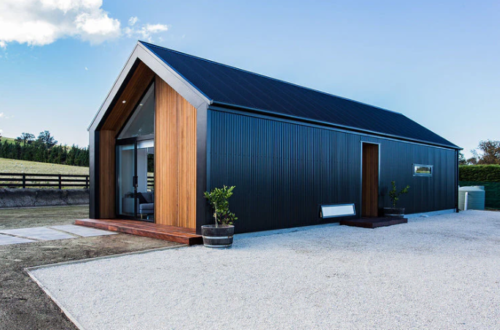Ensuring the safety of a commercial property is a top priority for business owners. From protecting valuable assets to ensuring the well-being of employees and customers, a well-implemented security plan can make a significant difference in safeguarding against theft, vandalism, and other potential threats. Below are key considerations for enhancing the security of your commercial property.
Commercial Security Systems Installation: Ensuring Robust Protection
One of the most crucial steps in enhancing commercial property security is the installation of a comprehensive commercial security system. This includes a combination of surveillance cameras, motion detectors, access control systems, and alarms. The right commercial security systems not only provide real-time monitoring of your property but also allow you to track incidents and ensure that any unauthorized access is immediately detected. By integrating cutting-edge technology, you can create a secure environment that is monitored around the clock.
Security Services: Professional Assistance for Enhanced Safety
In addition to installing security systems, security services from trained professionals can play a critical role in boosting security. These services can include on-site security guards, patrols, and emergency response teams, all of which provide an additional layer of protection. Professional security personnel can respond quickly to any suspicious activity, deter potential criminals, and provide immediate assistance in case of emergencies. By partnering with reputable security companies, you can ensure a high level of vigilance and reduce the risk of criminal activity on your property.
Access Control: Managing Entry Points and Restricting Access
Access control is another fundamental consideration in commercial property security. Controlling who can enter specific areas of your property helps to reduce unauthorized access and potential threats. Implementing key cards, biometric systems, or PIN codes for employees, contractors, and visitors can ensure that only authorized individuals have access to sensitive or restricted areas. Regularly updating and monitoring access control systems ensures that your property remains secure, especially in high-risk areas such as warehouses, data centers, or financial offices.
Lighting: Deterrence through Visibility
Proper lighting is an often-overlooked but essential component of commercial property security. Well-lit areas around the perimeter, parking lots, and entryways can deter criminal activity by increasing visibility. Criminals are less likely to target properties that are well-lit, as it increases the chances of being seen. Installing motion sensor lights or keeping lights on during evening hours can also improve security by making it easier for security personnel and cameras to monitor activities around the property.
Regular Security Audits: Identifying Vulnerabilities
Regular security audits are critical for maintaining an effective security plan. These audits help identify vulnerabilities in your security infrastructure and provide an opportunity to implement necessary improvements. Whether it’s checking the functionality of surveillance cameras or ensuring that alarm systems are up to date, a routine audit helps you stay proactive rather than reactive. Security audits can also uncover blind spots that may need additional surveillance or physical barriers to enhance protection.
Emergency Response Plans: Preparedness for Crisis Situations
Even with the best security measures in place, emergencies can still occur. That’s why it’s essential to have a well-defined emergency response plan for your commercial property. This plan should include protocols for natural disasters, fire evacuations, medical emergencies, and active shooter situations. Make sure employees are trained in emergency procedures and that the plan is regularly reviewed and updated. Having a clear, concise emergency response plan can minimize chaos and ensure that everyone on the property knows how to act in a crisis.
Physical Barriers: Strengthening Property Boundaries
Physical barriers such as fences, gates, and bollards can provide an additional layer of security to your commercial property. These barriers not only prevent unauthorized access but can also protect your property from vehicle-related threats, such as ramming or vehicular attacks. While not a replacement for other security measures, physical barriers can be an effective deterrent when used in combination with surveillance systems and security services.
Employee Training: Enhancing Internal Security
Another critical consideration for boosting security is employee training. Employees should be educated on the importance of security protocols, such as how to handle sensitive information, how to recognize suspicious activity, and how to use security systems effectively. Encouraging a culture of security awareness within the workplace can prevent internal threats and ensure that everyone plays a role in maintaining a safe environment.
Conclusion
Enhancing the security of a commercial property requires a multi-faceted approach that involves both technology and human resources. By investing in commercial security systems installation, utilizing security services, implementing access control measures, ensuring proper lighting, conducting regular security audits, and having an emergency response plan in place, you can create a comprehensive security strategy. With these considerations, your commercial property will be better protected against potential threats, ensuring the safety of both your assets and your people.



